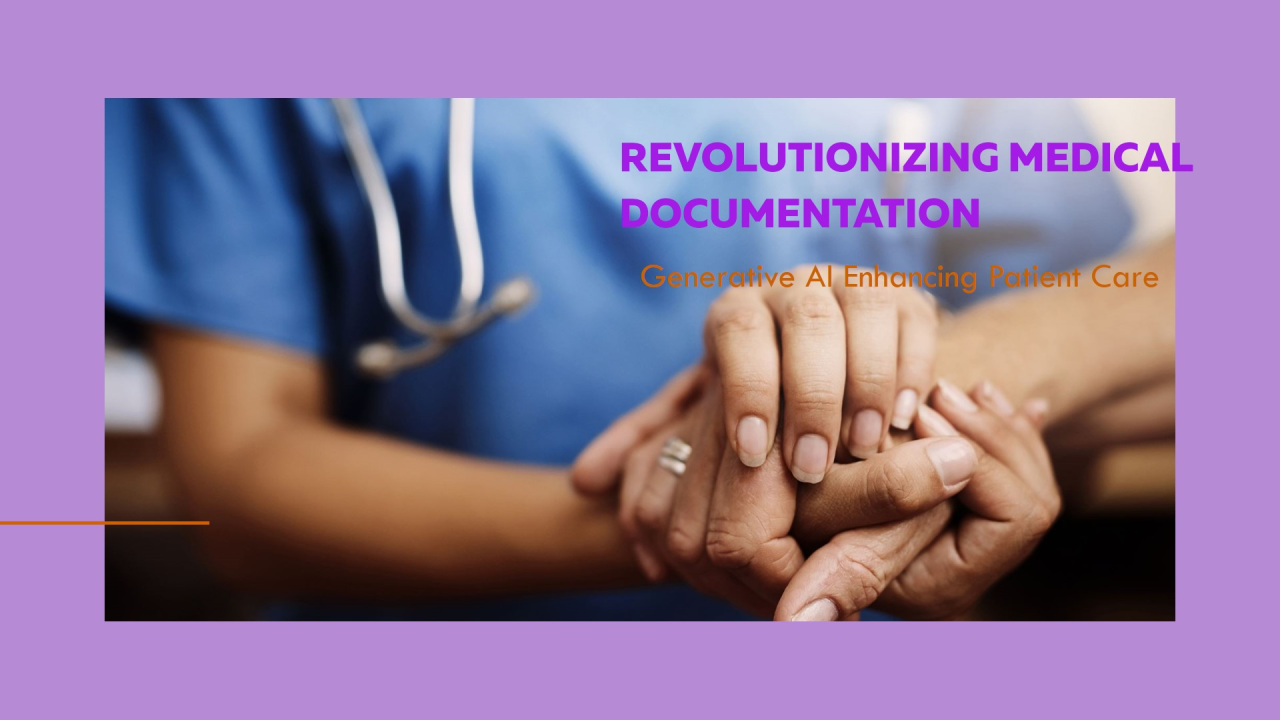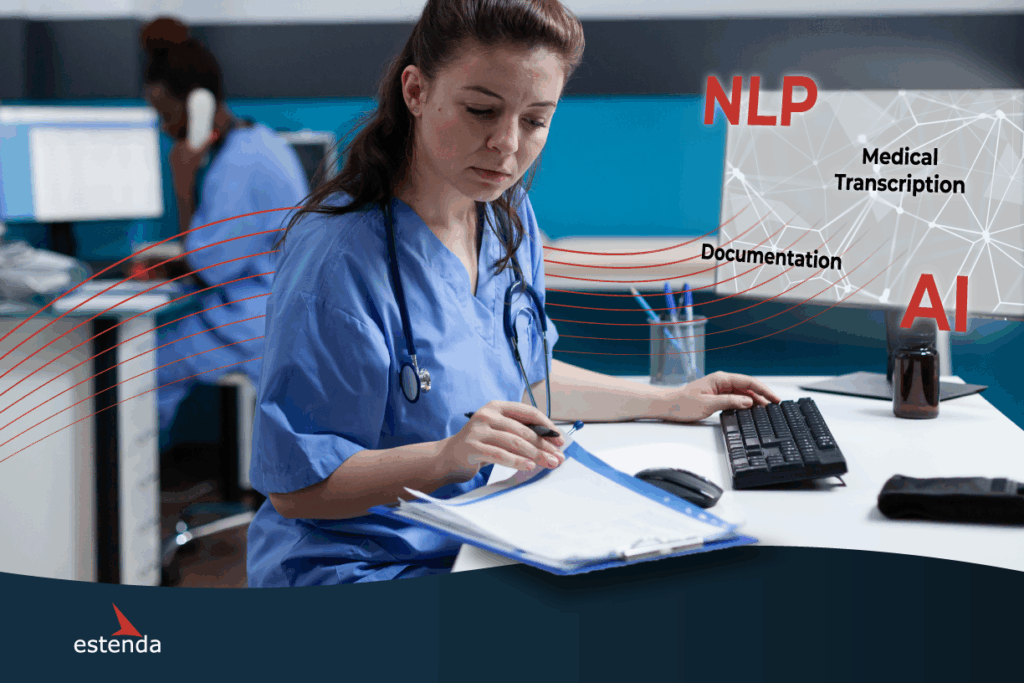Revolutionizing Healthcare
In the high-stakes world of healthcare, accuracy, speed, and compliance are everything. From patient records to clinical notes, the need for efficient medical documentation has never been more critical. That’s where a reliable AI medical documentation software development company comes in.
At Datics.ai, we specialize in building custom AI-powered solutions that automate and streamline medical documentation, helping healthcare providers save time, reduce errors, and focus more on what truly matters: patient care.
AI Software Development Company
Call: +1 (945) 297-6257
Email: contact@datics.ai
Address: 1353, 701 Tillery Street Unit 12, Austin, TX, Travis, US 78702
The Problem with Traditional Medical Documentation
Before diving into how AI helps, it’s crucial to understand the challenges healthcare providers face with conventional documentation methods:
- Manual data entry is time-consuming.
- Increased risk of errors or missing information.
- Compliance and billing issues due to inaccurate coding.
- Limited time for patient interaction.
In a busy clinical setting, even minor inefficiencies in documentation can create ripple effects—delaying care, increasing burnout, and risking compliance violations.
How AI Is Transforming Medical Documentation
AI-powered medical documentation tools are designed to support providers in real-time, whether during patient interactions or post-visit review. Here’s how:
1. Speech Recognition & Natural Language Processing (NLP)
AI can transcribe physician-patient conversations on the spot using advanced speech-to-text algorithms. With natural language processing, it understands medical context and translates free-form language into structured data. This technology reduces the need for manual typing, allowing providers to speak freely while the AI captures accurate, contextual notes.
2. Real-Time Clinical Note Generation
Instead of spending hours after a shift writing up patient records, AI tools can instantly generate documentation. These tools learn from clinical patterns and adapt to the provider’s documentation style, ensuring notes are not only fast but also personalized and compliant.
3. Automated Coding for Billing & Compliance
One of the most tedious tasks in healthcare is assigning proper ICD and CPT codes for billing. AI systems analyze clinical notes and automatically suggest or insert appropriate billing codes, significantly reducing claim denials and improving revenue cycles.
4. Error Detection and Quality Control
AI can flag missing or inconsistent data within records, ensuring documentation is thorough and accurate. It can even suggest corrections or highlight incomplete entries before they are finalized.
5. Data Integration Across Systems
Many AI solutions can be integrated into electronic health records (EHRs), lab systems, and billing platforms. This streamlines the flow of information across departments—creating a unified, accessible patient record.
Real-World Benefits for Healthcare Providers
The implementation of AI in documentation leads to noticeable improvements across the board:
- 30–50% time savings in documentation.
- Enhanced focus on patient care rather than administrative tasks.
- Reduced risk of burnout among physicians.
- Improved compliance and reimbursement accuracy.
- Stronger data insights for clinical and operational decisions.
This shift is more than a technical upgrade—it’s a strategic evolution in healthcare delivery.
AI-Driven Development with Industry Expertise
Developing an AI system that fits into the sensitive and complex ecosystem of healthcare requires deep domain knowledge. It’s not just about writing code—it’s about understanding the nuances of:
- HIPAA compliance
- Clinical workflows
- Data security and patient privacy
- Interoperability with existing hospital systems
Companies that specialize in AI software development for healthcare bring this critical blend of technical capability and industry insight. Their solutions are purpose-built, ensuring technology works for the clinicians, not the other way around.
What to Look for in an AI Medical Software Partner?
Choosing the right development team to build your AI documentation tool is as important as the technology itself. Look for:
- Experience in healthcare AI and compliance frameworks
- Custom solution capabilities (not one-size-fits-all software)
- Collaborative development with clinical input
- Post-deployment support and optimization
- Data security best practices
Many forward-thinking healthcare organizations are already partnering with experts who offer AI solutions tailored to their unique environments. These collaborations result in tools that fit seamlessly into day-to-day workflows while bringing innovation and efficiency.
A Glimpse Into the Future of AI in Healthcare Documentation
The journey doesn’t end at automated note-taking. The future promises even deeper AI integration:
- Predictive documentation that anticipates what should be recorded based on symptoms or past visits.
- Multilingual transcription tools for global or diverse patient populations.
- Smart summarization for specialist referrals or interdepartmental communication.
As AI matures, documentation will become faster, more intelligent, and more human-centered—giving time back to healthcare workers and improving outcomes for patients.
If your organization is ready to explore custom AI solutions that align with your clinical needs, partnering with experts who understand both the technology and the healthcare industry is key.
AI Software Development Company
Call: +1 (945) 297-6257
Email: contact@datics.ai
Address: 1353, 701 Tillery Street Unit 12, Austin, TX, Travis, US 78702
FAQs
1. How does AI improve accuracy in medical documentation?
AI detects patterns, reduces manual entry, and flags inconsistencies, helping ensure all records are accurate, compliant, and complete.
2. Can AI medical documentation software integrate with EHR systems?
Yes, many AI solutions are designed to integrate with major EHR platforms, allowing seamless data flow across systems.
3. Is AI medical documentation HIPAA-compliant?
When developed by experienced teams, AI tools are designed with HIPAA and other privacy regulations in mind to protect patient data.
4. Who benefits the most from AI-powered documentation?
Physicians, nurses, administrative staff, and billing teams all benefit from reduced workload, improved accuracy, and faster workflows.
5. What makes a good AI software development partner in healthcare?
A team with both AI expertise and healthcare industry knowledge is essential. Look for partners who offer tailored solutions, not off-the-shelf products.



